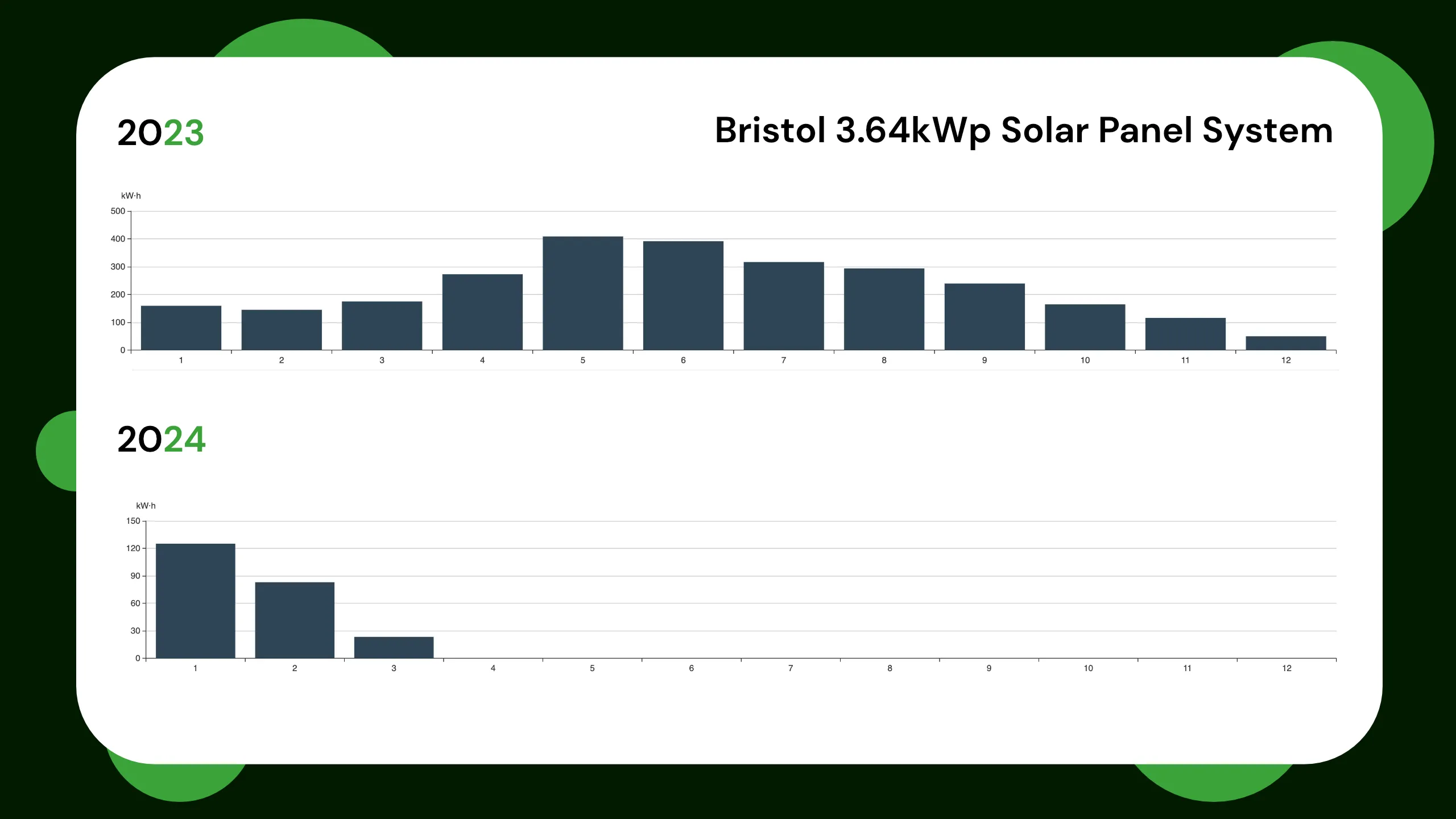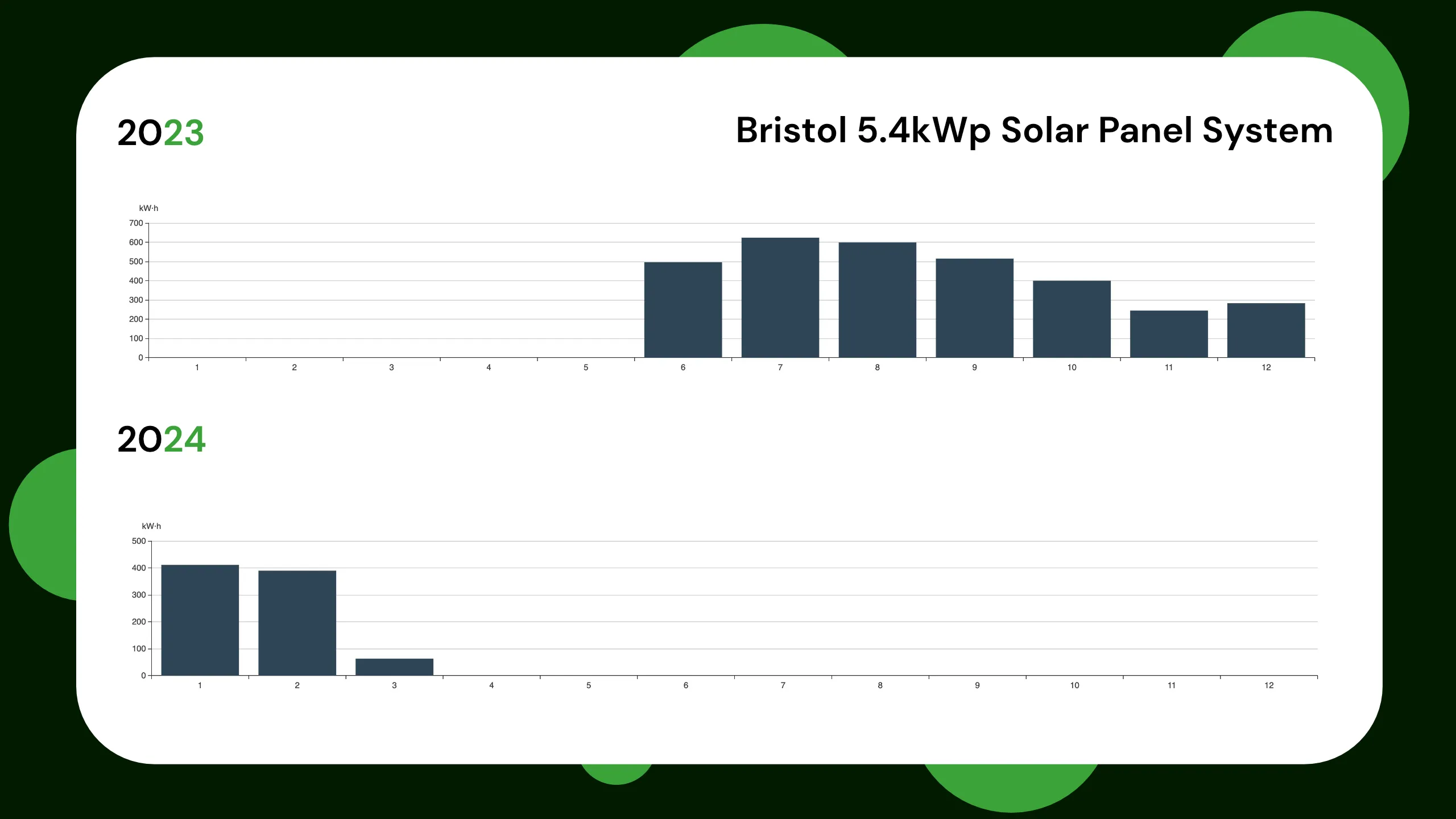As a solar panel installation company, we often receive questions from customers about the effectiveness of solar panels during the winter months. Many people assume that solar panels don’t work well in cold weather, but the truth is that they can still generate electricity even when it’s snowing outside. Clearly their overall output generally is lower in the winter months, this is why we use complex design software to design our customers solar systems and show them the estimated output on a monthly basis, taking into account daylight hours, increases in shading and almost factor you can imagine. Almost every time this ends up looking like a nice smooth curve when plotted on a graph, with a peak bang in the middle of the summer months! In this article, we’ll analyse winter solar PV generation and help you decide whether you should get solar panels installed in winter or wait for summer.
Do Solar Panels Work in Cold Weather?
The short answer is yes, solar panels do work in cold weather. In fact, studies have shown that solar panels can actually perform better in colder climates than in hot ones! This is because high temperatures can reduce the efficiency of solar panels, while cooler temperatures can increase their performance. So most of the downturn in performance from your solar panels in the colder winter months, is purely down to the lower solar energy available, due to factors like the shorter daylight hours and increased cloud cover. So what we always say to customers new to solar panels, that go for an installation in winter, is that it can only get better. As the weather improves into the summer months, your generation will skyrocket and hit it’s peak performance.
Why Are Solar Panels More Efficient in Colder Temperatures?
Many people don’t realise that the efficiency of solar pv panels can vary depending on the temperature. In general, solar panels operate most efficiently at moderate temperatures, typically around 25°C. As the temperature increases beyond this point, the efficiency begins to decrease. However, the relationship between temperature and solar panel efficiency is complex, and there are several factors to consider. Firstly, it’s important to understand that solar panels are made up of various components, including photovoltaic (PV) cells, glass, frame, and wiring. Each of these components has its own unique thermal properties, which can affect the overall efficiency of the panel.
When the temperature rises, the PV cells within the solar panel begin to degrade in terms of efficiency. This is because high temperatures increase the flow of charge carriers within the cells, which reduces the voltage generated. Essentially, the increased heat causes the electrons to move faster, leading to a decrease in the panel’s ability to convert sunlight into electricity. On the other hand, colder temperatures can actually improve the efficiency of solar panels. When the temperature drops, the flow of charge carriers slows down, allowing the panel to maintain a higher voltage. As a result, solar panels can produce more electricity per hour in cool weather compared to hot weather.
Real-Life Examples of Winter Solar PV Generation
To illustrate how effective solar panels can be during the winter months, let’s take a look at some real-life examples of systems we’ve installed here at Solar Sun & Air. One of our clients in Bristol had a 3.64kWp solar panel system installed on their roof in winter 2022-2023. Despite the cold weather, this system has still generated an average of around 90-100 kWh per month over the past few months– still enough to power a good chunk of their household usage!

This next one was a slightly larger system at 5.4kWp, installed mid 2023, at the highest producing time of year. Showing some great production hitting 600kWhs in the first 2 months of full operation! Before slowly declining to a winter performance level of between 200-400 kWhs. December it seems had more of an impact on the previous example than this one (likely due to shading factors) However both system saw an increase in the new year.

Should You Get Solar Panels Installed in Winter or Wait for Summer?
So, now that we know solar panels can still work effectively in winter, the question remains: should you get them installed during the colder months or wait until summer? The decision ultimately depends on your specific situation and goals. There are also demand benefits that could mean you can get your panels installed faster in winter. Here are some factors to consider:
Pros of Installing Solar Panels in Winter:
- Lower demand for installations means shorter waiting times and potentially lower prices or better deals on systems, for example we are currently offering a price match guarantee for all solar panel systems!
- Your system will start generating electricity sooner, reducing your reliance on traditional energy sources right away.
Cons of Installing Solar Panels in Winter:
- Shorter days and less sunlight may result in lower energy production in the beginning of your solar journey, this can be discouraging.
Ultimately, the best time to install solar panels is whenever it makes financial sense for your household or business. If you’re looking to save money on your energy bills and contribute to a sustainable future, there’s no reason to wait for summer. Our team at Solar Sun & Air can assess your property and provide personalised recommendations on the best course of action for your unique situation.
So What Should You Do?
In conclusion, solar panels can still generate electricity effectively during the winter months, making it a great time to consider installing a solar PV system. Whether you choose to get solar panels installed in winter or wait for summer, remember that investing in renewable energy is not only good for the environment, but also for your wallet. Contact us today to learn more about how solar panels can benefit you and schedule a consultation with one of our experts.


